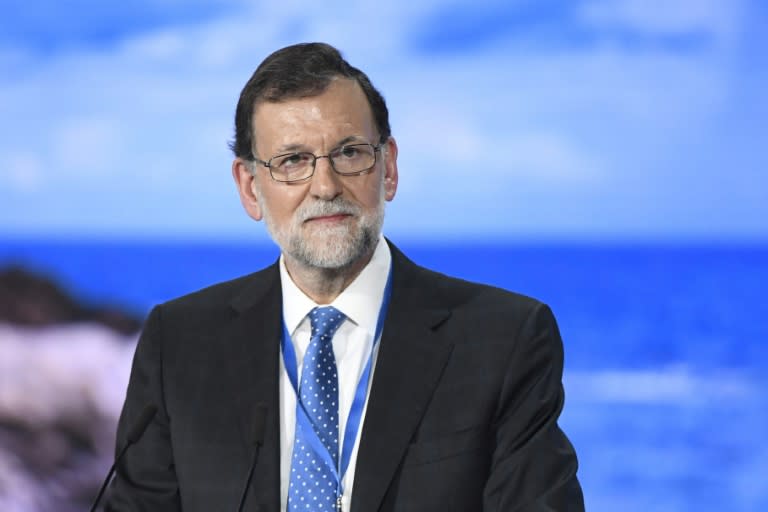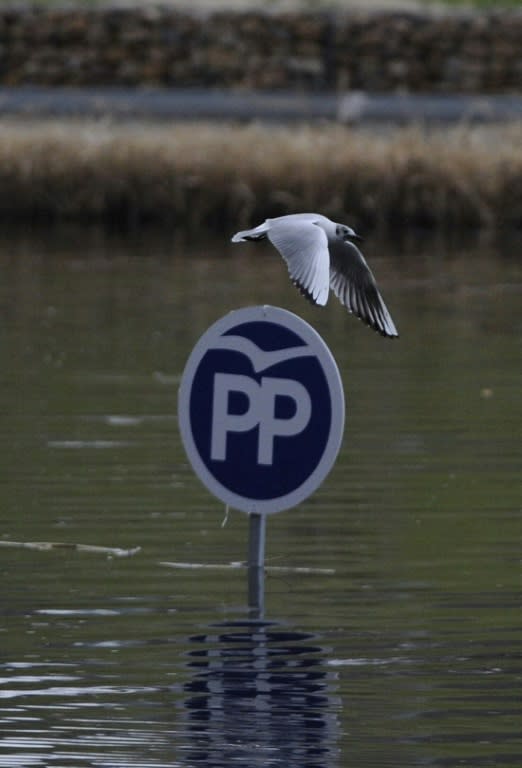Spanish PM called to testify in major graft trial
A court on Tuesday summoned Mariano Rajoy to testify as a witness in a major graft trial, the first time in modern history that any Spanish prime minister has had to take the stand. The so-called Gurtel trial centres on a vast bribery network allegedly involving former members of Rajoy's Popular Party (PP), weakened by repeated accusations of graft. While Spain's 62-year-old leader is not accused of anything, his post as party chief since 2004 means he could provide valuable testimony. "They have called him as witness," a spokesman for the National Court that deals with major corruption cases told AFP, adding that no date had been set yet for the hearing. "Rajoy will be the first acting prime minister who has to appear in court as a witness," said Jaume Munoz Jofre, a historian and author of "Corrupt Spain: a brief history of corruption." The only comparable events since Spain's transition to democracy following dictator Francisco Franco's 1975 death, he added, were the court appearances of two former prime ministers. Felipe Gonzalez, an ex-Socialist leader, and Adolfo Suarez, prime minister during the transition, both testified as witnesses in separate trials in 1998. - 'Not agree' - A source at Rajoy's office, who refused to be named, said the government was "always willing to collaborate with judicial authorities as is normal in a democracy. But the PP said that while it "respects" the court's decision to summon Rajoy, "we cannot agree with it". The lawyers association, ADADE, which has filed the graft case with the court "attributes functions to Rajoy which were not his responsibility", the party said in a statement, before adding that the group is headed by two men with close ties to the main opposition Socialists. The Gurtel case allegedly saw companies shower former PP lawmakers and civil servants with bribes in exchange for contracts. Altogether, 37 defendants face justice including two former party treasurers and businessman Francisco Correa, the alleged head of the network. The case even forced the resignation of Rajoy's health minister Ana Mato in 2014, accused of benefitting from illegally-obtained funds via her then husband who was mayor of the city of Pozuelo de Alarcon near Madrid. According to a confession published by Correa in online daily eldiario.es, companies would give him a commission of two to three percent on the value of public contracts. After taking his share, he would allegedly give politicians involved in awarding contracts some of the money too. He also claimed he gave money to Luis Barcenas, a man also on trial who was PP manager from 1980s to 2008 and then treasurer for a year. - Party slush fund? - Further complicating matters, Barcenas claimed in 2013 that part of that money went into a secret party slush fund. The fund is an ingredient of the current case but not the focus, as a separate trial on it is pending. Barcenas was nevertheless questioned on the subject in January, and acknowledged there existed secret accounts in the PP, pointing to "financial resources that did not appear in official book-keeping." But he said that rather than bribes, businessmen gave donations "generously" without expecting anything in return. "I never received anything from Correa, not for me nor for the PP," he added, blasting the businessman's allegations as "nonsense". When questioned by a judge in 2013, Barcenas had also claimed he had given Rajoy envelopes of cash. But in his January hearing, he defended Rajoy, saying he had given orders not to use Correa's companies anymore in 2003, "because he was told that Correa was engaged in illegal activities." Corruption is a major issue in Spain -- which last year scored its worst ranking in Transparency International's annual corruption perceptions index -- with the PP, rival Socialists and regional politicians hit by scandals. Such is public anger over the issue that many voters have flocked to two relatively new parties -- the far-left Podemos and the centre-right Ciudadanos. As a result, although the PP still won a general election last year, it failed to retain the absolute majority it won in 2011, and Rajoy now heads a minority government.



